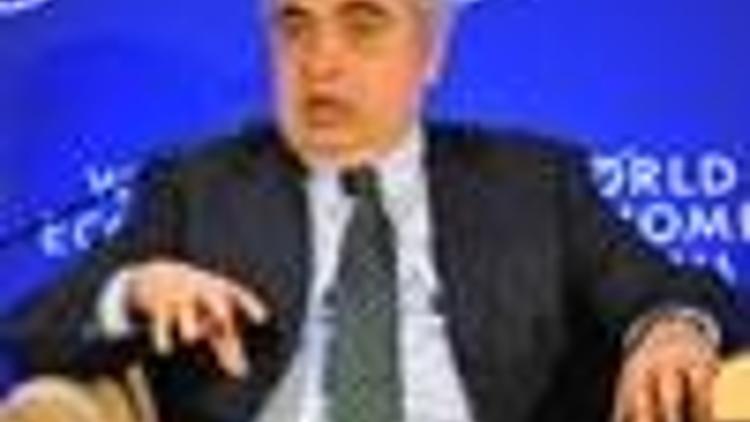International energy body says outlook for oil prices upward
Güncelleme Tarihi:

ISTANBUL - Oil prices would continue to decline on expectations of a global economic slowdown and would rise once the financial crisis ends, the International Energy Agency (IEA) warned.
“Some 97 percent of the global oil demand in the last three years came from China, India and Middle East countries and it is not clear how much those countries would be effected by the economic crisis in the West,” Fatih Birol, the chief economist of IEA told HotNewsTurkey on the sidelines of the World Economic Forum on Europe and Central Asia held in Istanbul last week.
If those countries are less affected than expected, their demand could create a base for the oil price, he added.
“I definitely expect oil prices to rise… It is certainly possible to see (the prices) go over 100 dollars but not in the short term. This could only happen after the economy recovers,” he said.
The IEA cut its 2008 oil demand growth forecast by 250,000 barrels per day to 440,000 bpd earlier this month, but said 2009 growth would depend on whether countries like India and China go into a recession as deep or as fast as developed countries.
“This (the fall in prices) is a situation which is a result of this financial shock and oil prices would begin to rise seriously in 1 or 1-1/2 years. Because the fundamentals on both demand and supply sides signal the prices would increase,” he said.
The decline of oil prices had stalled or delayed energy investments which are needed on the supply side to meet a potential increase in demand, and because of that, the world might face a “perfect storm” in which all negative factors collide, he warned.
Oil prices hover below $67 a barrel as investors expect a slowing global energy demand amid the financial crisis.
In three months, oil has wiped out gains that took more than a year to build, down more than half since they struck a record $147.27 a barrel in July as a raft of poor economic data added pressure from weak demand reports in the

